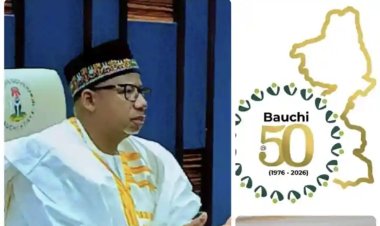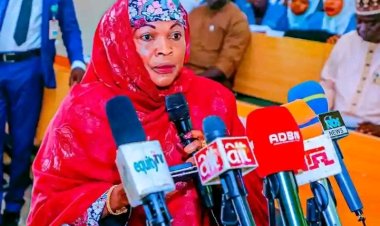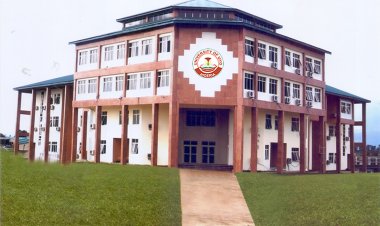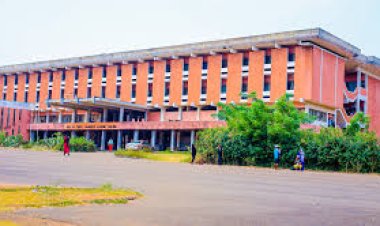CITAD advocates inclusive education for women, girls with disabilities in Bauchi
Centre for Information Technology and Development (CITAD) have emphasized the importance of inclusive education for women and girls with disabilities.
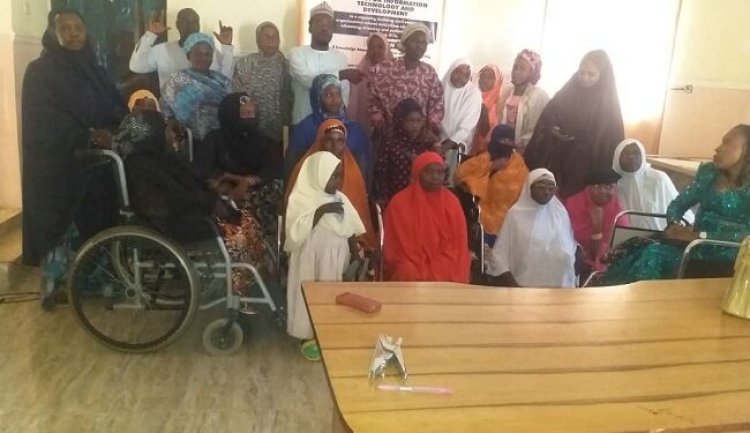
Centre for Information Technology and Development (CITAD) have emphasized the importance of inclusive education for women and girls with disabilities and the need for concerted efforts to address the challenges and implement effective inclusive education practices.
This is contained in a communique issued at the end of a roundtable discussion on ‘Inclusive Education for Women and Girls with Disabilities’ organised by CITAD, Bauchi office in observance of the International Day of Persons with Disabilities.
The discussion brought together experts, policymakers, educators, women and girls with disabilities to address the critical issue of inclusive education for women and girls with disabilities.
It was aimed at identifying challenges, sharing best practices, and developing recommendations for promoting inclusive education practices as the participants highlighted several challenges that hinder inclusive education for women and girls with disabilities.
Participants in the roundtable discussion highlighted several challenges that hinder inclusive education for women and girls with disabilities including segregated against inclusive schools.
There is an ongoing debate about whether segregated schools or inclusive schools are more effective for students with disabilities, while segregated schools may provide specialised support, inclusive schools offer opportunities for social interaction and equal participation.
Teacher training, it was agreed that not all teachers are adequately trained to implement inclusive education practices thereby, effective teacher training is essential to ensure that all students, regardless of their abilities, receive the support and resources they need to succeed.
Infrastructure and accessibility, it was observed that many schools lack the physical infrastructure and accessibility features to accommodate students with disabilities, a situation that can create significant barriers to learning.
On sign language interpretation, it was discovered that access to sign language interpretation is crucial for students who are deaf or hard of hearing, however, sign language interpreters are often in short supply, limiting access to education for these students.
Government support plays a critical role in promoting inclusive education through policy initiatives, funding, and support for teacher training and infrastructure development.
On parental involvement, parents of children with disabilities play a vital role in their children’s education, however, some parents may face financial constraints or lack awareness of inclusive education practices.
Societal stigma associated with disabilities can hinder the acceptance and inclusion of students with disabilities in schools and communities, therefore, addressing societal stigma is essential for creating a more inclusive environment.
Recommended: Nigerian Army Initiates Educational and Infrastructural Outreach in Nasarawa
Equipping students with disabilities with relevant skills acquisition is crucial for their future employment and independence, as such skills acquisition programs should be integrated into inclusive education curricula.
Other major challenges include inadequate allocation of funds to special education as well as lack of policy implementation.
In line with the Solomanka Declaration of 1994, which emphasizes inclusion as a norm, the roundtable discussion participants developed the following recommendations for promoting inclusive education for women and girls with disabilities.
Advocate for inclusive schools for supporting the development of inclusive schools where students with disabilities can learn alongside their peers without barriers.
Invest in teacher training to provide comprehensive teacher training on inclusive education practices and ensure that all teachers have the skills and knowledge to support students with diverse needs.
Improve infrastructure and accessibility by Allocating adequate funding to upgrade school infrastructure and provide necessary accessibility features to accommodate students with disabilities.
Promote sign language interpretation through increasing the availability of qualified sign language interpreters to ensure that students who are deaf or hard of hearing have equal access to education.
Strengthen government support by encouraging governments to adopt policies and allocate resources to promote inclusive education practices and support teacher training and infrastructure development.
Read More: Foundation Pioneers Educational Haven in Enugu for Orphans and the Less Privileged
Empower parents and provide them with resources, training, and support to effectively advocate for their children’s educational needs and participate actively in their education.
Combat societal stigma through the Implementation of awareness campaigns and sensitization programmes to address societal stigma and promote inclusive attitudes towards individuals with disabilities.
Integrate skills acquisition by incorporating skills acquisition programmes into inclusive education curricula to prepare students with disabilities for employment and independent living, increase in the allocation of funds; Increase the allocation of funds for special education while governments adopt and implement existing policies on inclusive education.
The participants declared “By working together, we can create a world where all students, regardless of their abilities, have the opportunity to reach their full potential.”
The communique was jointly signed by Mrs Larai Bishams, SUBEB, Bauchi; Asmaú Yahya Executive Director WDIDI and Maryam Ahmad, HDI.

 Nnenna Orji
Nnenna Orji 